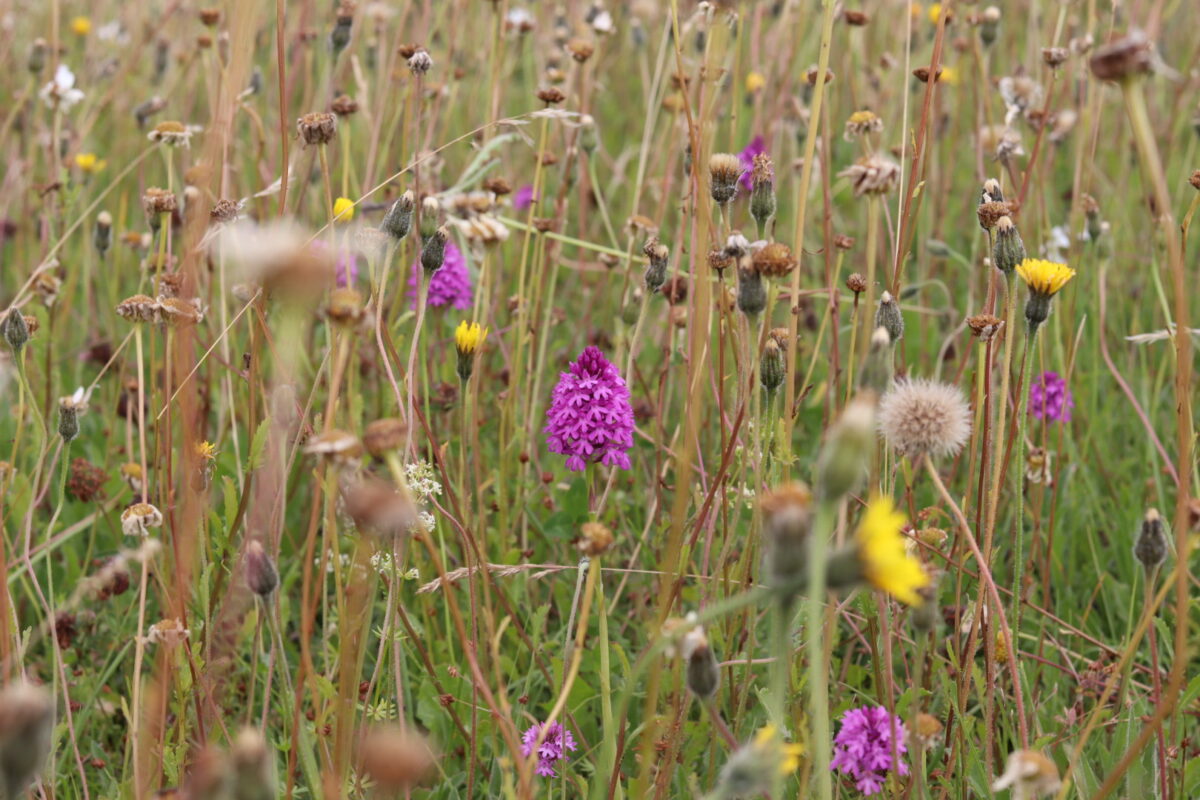Biodiversity Net Gain (BNG) is a transformative approach to development that ensures new projects not only mitigate their environmental impact but also enhance the natural world. Introduced as a statutory requirement in England under the Environment Act 2021, BNG mandates that new developments deliver a minimum 10% increase in biodiversity value compared to the pre-development baseline.
Biodiversity Net Gain is now a mandatory requirement for all new developments as of February 2024. It’s introduction signifies a shift in how development interacts with the environment. By embedding biodiversity considerations into the planning process, BNG aims to reverse the trend of habitat loss and species decline associated with urbanisation and infrastructure development.
This approach aligns with broader environmental goals, including the UK’s commitment to achieving net-zero emissions and halting biodiversity loss. By prioritising biodiversity in development, BNG fosters a more harmonious relationship between human activity and the natural world.

What is Biodiversity Net Gain?
At its core, BNG is about creating and improving natural habitats. It also helps to ensure that development results in more or better-quality natural habitats than existed before. Achieving this requires a combination of on-site habitat creation, enhancement, or, where that’s not feasible, off-site biodiversity gains.
The biodiversity value is quantified using a standardised metric, considering factors like habitat type, size, quality, and location. This ensures that biodiversity gains are measurable and comparable across different projects. It also ensures that there is accountability for ensuring the long-term persistence of the gain.
The Legal Framework Behind BNG
The legal outline for BNG is in Schedule 7A of the Town and Country Planning Act 1990. This framework requires developers to submit a Biodiversity Gain Plan as a pre-commencement condition for planning permission. Also, the plan must demonstrate how the development will achieve the required biodiversity uplift.
The framework has been put in place by the government as part of their “Levelling-up and Regeneration Act” of 2023. However, the reality is that biodiversity net gain may make it easier for developers to gain planning permission.
Learning to be a Biodiversity Net Gain Practitioner
Biodiversity Net Gain, when carried out correctly could be a significant boost to British wildlife. But it requires well trained practitioners to ensure its success. Ecology Training UK offers an online course designed to equip individuals with the knowledge and skills needed to navigate the process of becoming a practitioner. This course covers the principles of BNG, the legal requirements, and practical strategies for achieving biodiversity enhancements in development projects. It’s an invaluable resource for developers, planners, and ecologists aiming to stay ahead in this evolving field.
We also offer a range of other courses that will complement and enhance your learning such as Beginner’s Botany, Phase 1 Habitat Mapping, QGIS mapping systems, and many more key skills needed for BNG practitioners.
Potential Pitfalls of Biodiversity Net Gain
While BNG presents significant opportunities, it’s essential to be aware of potential challenges:
- Implementation Challenges: Achieving a 10% biodiversity uplift may be difficult on sites with limited space or degraded habitats.
- Monitoring and Enforcement: Ensuring that biodiversity gains are maintained over time requires robust monitoring and enforcement mechanisms.
- Quality vs. Quantity: Focusing solely on quantitative metrics may overlook the qualitative aspects of biodiversity, such as ecosystem functionality and species interactions.
To address these challenges there has to be collaboration between developers, ecologists, and local authorities to ensure that BNG delivers genuine, long-term ecological benefits.
The Future of BNG
Looking ahead, we expect BNG to play a crucial role in shaping sustainable development practices. As the framework matures, there may be opportunities to refine the metrics, expand the scope to include more types of development, and enhance the support structures for implementation. We also hope that this will create more job opportunities within the ecological sector.
For professionals in the field, staying informed and trained on BNG is vital. Ecology Training UK’s online course offers a comprehensive introduction to BNG, providing participants with the tools and knowledge needed to start thier journey into becoming a Biodiversity Net Gain practitioner.



